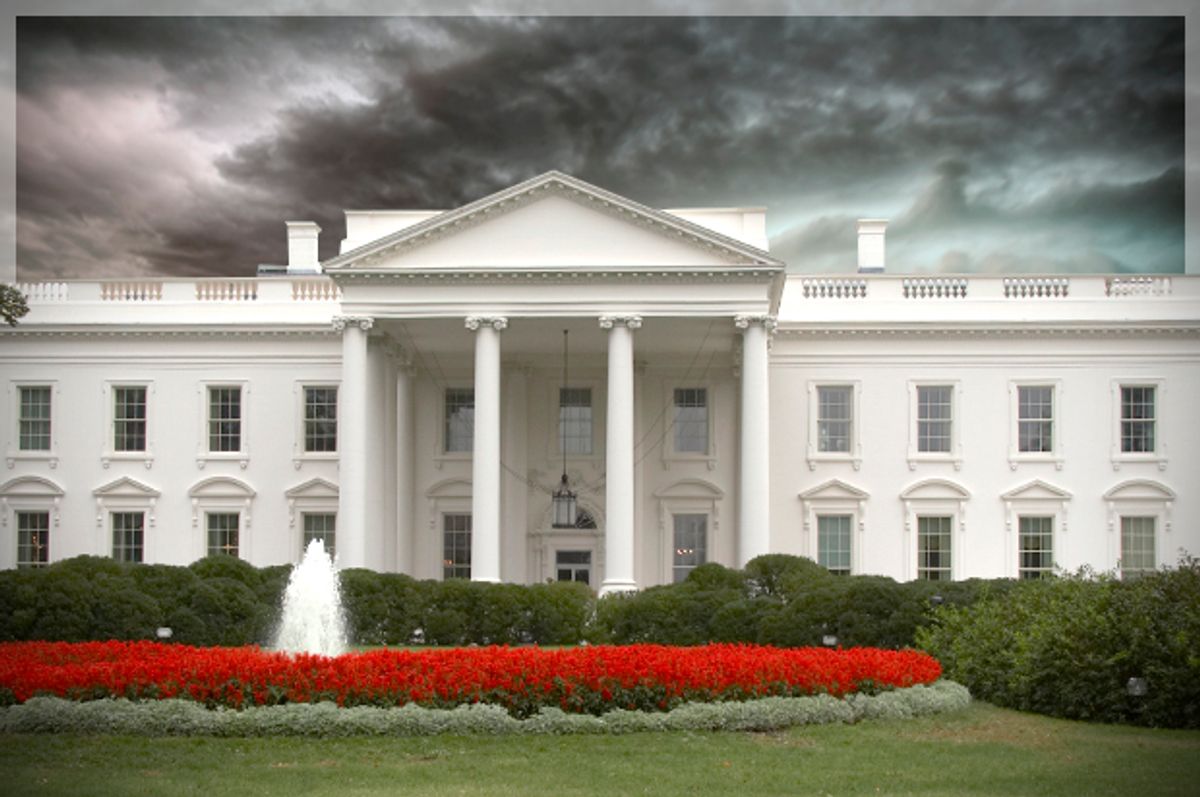A 36-year-old lawyer nominated and approved for a federal judgeship by the Senate judiciary committee — despite receiving an unanimous “not qualified” rating from the American Bar Association — failed to disclose that he is married to a White House staffer, The New York Times reported Monday.
The lawyer, Brett Talley, is married to Ann Donaldson, the chief of staff to the White House Counsel Donald F. McGahn II. Talley did not disclose this when asked on his Senate questionnaire to identify family members who are “likely to present potential conflicts of interest.”
Talley's confirmation in the Senate judiciary committee was already controversial, considering the lawyer had never tried a case, let alone adjudicate a legal proceeding. He is one of three judges who the ABA has unanimously rated as not qualified for a federal judgeship since 1989, the Times reported.
Talley was confirmed on a party-line vote, and Democrats are voicing outrage over his omission in the questionnaire.
Top D on Judiciary Cmte, @SenFeinstein, says Senate should not consider Trump's judicial pick until he answers Qs about why he failed to disclose that he's married to a WH lawyer --> pic.twitter.com/L7bJH5ONgh
— Frank Thorp V (@frankthorp) November 13, 2017
The White House insisted last week there was nothing unusual with Talley's nomination.
“Mr. Talley served as deputy solicitor general for the state of Alabama, currently serves in the Department of Justice’s Office of Legal Policy and was recommended by Alabama’s U.S. senators,” said Sarah Huckabee Sanders, the White House press secretary. “He is more than qualified to serve in the federal judiciary.”
But Talley's relationship to the White House undoubtedly creates a conflict of interest, which only amplifies the nuisance he would bring to the courts.
As ThinkProgress Justice Editor Ian Millhiser wrote:
Talley’s lack of experience is likely to be a particular liability because he was nominated to sit on a trial court. Though appellate judges are considered to be more prestigious and sit on panels that have the power to reverse trial judges’ decisions, trial judges often have a much more difficult job. Appeals courts answer discrete legal questions after reading extensive briefing on the issue. Trial judges, by contrast, have to manage trial schedules, make rulings on the fly, and control what can become an unruly courtroom.
Did a prosecutor ask an inappropriate question of a potential juror? If the trial judge doesn’t react right away, the entire trial might be thrown out on appeal. The same can be true if a judge lacks fluency with the Federal Rules of Evidence. Or if they make the wrong split-second decision when an attorney raises an objection. It’s a tough job, riddled with traps for the unwary. And it’s difficult to imagine someone who has never tried a case before performing it well, or even adequately.



Shares